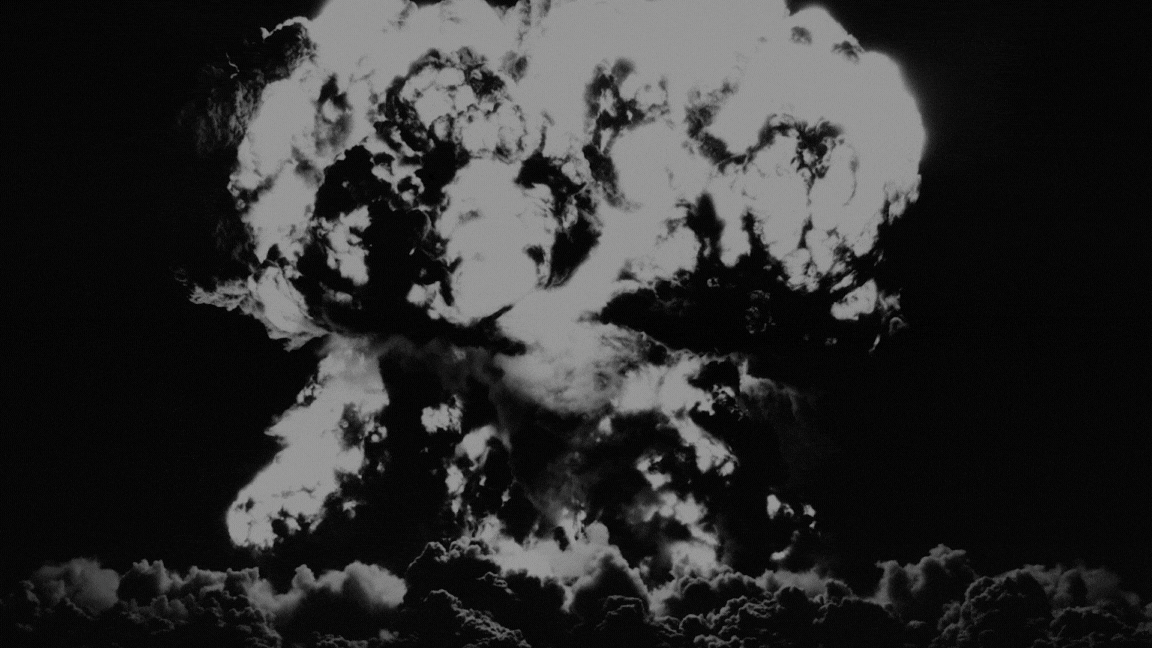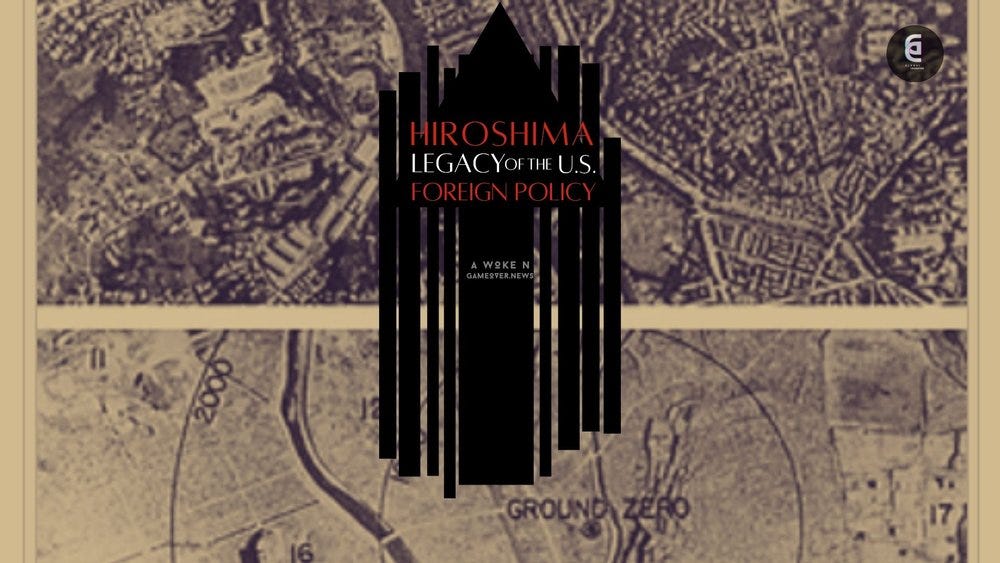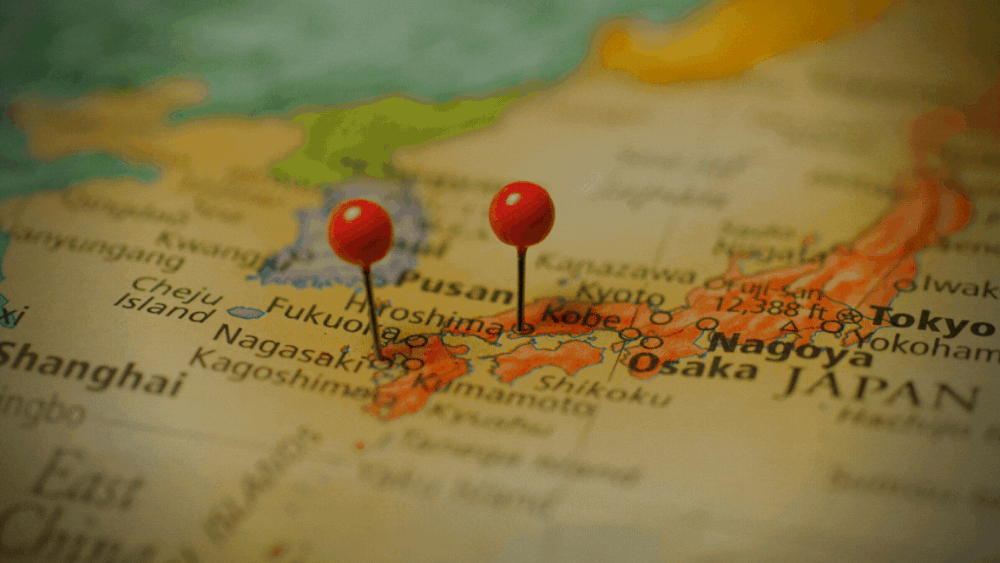Hiroshima Atomic Bombing - Unraveling The Horrors Of The Aftermath And Learning Hard Lessons For A Peaceful Future
They Didn't Have To Drop An Atomic Bomb on Civilians Because There Is Always Another Way.

Has The U.S. Paid The Price For This Egregious Crime Against Humanity and Since The Deadly Atomic Bombings, Has The Japanese Only Been A Poodle To The Dogs Of War?
This is Not Being Anti-America. I’m An American. This Is Called A Reality Check Of Historical Proportions.
The Hiroshima atomic bombing stands as a somber reminder of humanity's capacity for destruction. Its aftermath illustrates the horrors of warfare and the long-lasting consequences of nuclear weapons. By learning from this tragic event, we can strive for a future free from such violence. Emphasizing diplomacy, nuclear disarmament, and humanitarian considerations can pave the way for a more peaceful and secure world. Do you remember what happend in Hiroshima and to all the victims, and do you commit to building a better future where such atrocities are never repeated again?
Become Peaceful, Surrender Or Face Annilation? Now Prepare Yourself For The Boomerang Effect.
The Hiroshima atomic bombing was a dark chapter in human history that forever altered the course of warfare and international relations. On August 6, 1945, the United States dropped an atomic bomb on the Japanese city of Hiroshima, causing unparalleled devastation and loss of life.
As human beings and to fully understand what occurred in the past, we need to explore the far-reaching after-effects of the bombing, delving into the immediate impact on the city and its people, the long-term consequences on health and the environment, and the psychological trauma endured by survivors. It highlights the invaluable lessons that must be learned from this tragedy to ensure that mankind never repeats such an evil act on anyone.
Immediate Destruction and Human Toll:
The atomic bomb, codenamed "Little Boy," detonated approximately 2,000 feet above Hiroshima, releasing an explosive energy equivalent to approximately 15,000 tons of TNT. The blast instantly killed an estimated 70,000 to 80,000 people, while tens of thousands more were injured. Humans, animals, buildings, homes, and infrastructure were reduced to ashes in a matter of seconds. The destruction was so extensive that the landscape of Hiroshima resembled a vast wasteland of debris and devastation.
The horror of Hiroshima was compounded by the fact that many of the victims were harmless civilians, including women, children, and elderly individuals, who had no involvement in the war. The indiscriminate targeting of non-combatants raised ethical questions about the use of atomic weapons and their impact on civilian populations.
Lingering Effects of Radiation:
Apart from the immediate casualties, the atomic bombing of Hiroshima had far-reaching consequences due to radiation exposure. The explosion generated an intense burst of gamma rays and neutrons that caused radiation sickness among survivors and rescue workers. The symptoms included nausea, vomiting, diarrhea, hair loss, and hemorrhaging, and in many cases, led to death within weeks or months.
However, the most insidious impact of radiation was its long-term effects. Survivors who initially appeared unharmed later developed various forms of cancer, particularly leukemia. Additionally, children born to survivors faced a higher risk of genetic disorders and developmental abnormalities. The legacy of radiation-related health issues persisted for generations, leaving a deep scar on the collective psyche of the Japanese people.
Psychological Trauma and "Hibakusha":
Beyond the physical devastation, the psychological trauma endured by survivors, known as "hibakusha," was profound and long-lasting. The survivors witnessed the unimaginable horrors of the explosion and the suffering of their loved ones. Many experienced post-traumatic stress disorder (PTSD), nightmares, and anxiety, which continued to haunt them for the rest of their lives.
Moreover, hibakusha faced social stigmatization and discrimination due to ignorance about radiation exposure. Their experiences were often dismissed or downplayed, exacerbating their emotional pain and isolation. It is essential to recognize and empathize with the emotional turmoil endured by the Hibakusha, to ensure that history is not forgotten and that such atrocities are never repeated.
Environmental Contamination and Ecosystem Disruption:
The Hiroshima bombing also inflicted severe damage on the environment. The blast created radioactive isotopes that contaminated the air, water, and soil in and around Hiroshima. This contamination had a detrimental impact on the local ecosystem, leading to the destruction of plant and animal life.
Additionally, the radioactive particles released into the atmosphere spread far beyond Hiroshima, affecting neighboring regions and even reaching distant countries. The long-term environmental consequences of the bombing were a somber reminder of humanity's capacity to inflict damage on the earth they live on and all other living beings there.

Lessons to Prevent Repetition:
To ensure that the horrors of Hiroshima are never repeated, humanity must learn from this dark chapter in history and actively work towards a more peaceful and compassionate future:
Dialogue and Diplomacy: The international community must prioritize dialogue and diplomacy as the primary means of resolving conflicts. Engaging in open and respectful communication can help avoid escalating tensions and resorting to violence.
Nuclear Disarmament: The existence of nuclear weapons poses an existential threat to humanity. Countries must commit to nuclear disarmament, reducing stockpiles, and working towards their complete elimination. Nations that do not adhere to peace must be declared “Rogue Regimes” and must be barred, sanctioned, and held accountable.
Strengthening International Laws: Nations should reinforce international laws and conventions that protect civilian populations during times of conflict. The targeting of non-combatants should be condemned as a violation of basic human rights.
Fostering Cultural Exchange and Understanding: Promoting cultural exchange and understanding between nations can help build bridges and promote peaceful coexistence. Learning from one another's histories and cultures can dispel misconceptions and stereotypes, fostering empathy and cooperation.
Recognizing History and Education: It is crucial to recognize the victims of Hiroshima and other atrocities as a stark reminder of the consequences of war. Educational institutions must include these historical events in their curricula, so future generations understand the importance of peace and non-violence.

The Hiroshima atomic bombing was a catastrophe of immense proportions, leaving behind a legacy of destruction, suffering, and loss. Understanding the immediate and long-term after-effects of the bombing is vital to comprehend the magnitude of such violence and cruelty. To prevent mankind from repeating this evil act on each other, we must prioritize dialogue over conflict, pursue nuclear disarmament, strengthen international laws, foster cultural understanding, and perpetuate the memory of Hiroshima through education. By learning from history and embracing the values of peace, compassion, and empathy, we can work towards a world free from the horrors of atomic warfare and ensure a brighter, more harmonious future for generations to come. Otherwise, we did nothing but comply with evil.
How The Atomic Bombings Could Have Been Avoided And What Should Be Done To Ensure These Weapons Of Mass Destruction Are Never Used Again.
The atomic bombings of Hiroshima and Nagasaki were grievous events that resulted in immense loss of life and suffering. While hindsight allows us to analyze how they could have been avoided, it is also essential to consider that there was no need for the decision to use these weapons because other suggested alternatives are now being used today. It was so close to Shanghai and Russia and India. It was a Global Warning from the U.S. “If You Mess With America. America Will Blow You Up And Then Also Self Destruct”. The Allies were afraid the Japanese will not surrender. So they decided to kill half a million people just like that.
The U.S. could have “persuaded” or “invaded” instead of “bombed” like they did in Iraq or dropped it on a barren island as a warning shot, which historian Alex Wellerstein clearly points out, among many other options, in his article on his blog.
Nevertheless, there are several ways in which the atomic bombings could have been prevented and steps that can be taken to ensure the world never resorts to using weapons of mass destruction again.
Diplomatic Solutions and Conflict Resolution:
One of the primary ways the atomic bombings could have been avoided was through diplomatic negotiations and conflict resolution. World War II was a global conflict involving several nations, and tensions were high. If the major powers had prioritized diplomacy and peaceful negotiations, the war might have ended without resorting to the use of atomic weapons.
To prevent future use of such weapons, countries must continue to prioritize diplomacy as a means of resolving conflicts instead of deploying “tit for tat” attitudes like school kids. International organizations like the United Nations play a crucial role in mediating disputes and promoting peaceful dialogue. Diplomatic channels should be open and used extensively to de-escalate tensions and find mutually acceptable solutions to conflicts.
Nuclear Disarmament and Non-Proliferation:
The development and use of atomic bombs during World War II prompted a dangerous nuclear arms race during the Cold War. The proliferation of nuclear weapons among several nations increased the risk of nuclear conflict. To avoid future use of nuclear weapons, nuclear disarmament is essential but is not being achieved.
Countries possessing nuclear weapons must commit to reducing their stockpiles and work towards complete disarmament. Non-nuclear states should refrain from seeking nuclear weapons, and the international congregation must take measures to prevent the spread of nuclear technology and materials. The Treaty on the Non-Proliferation of Nuclear Weapons (NPT) is a critical instrument in promoting non-proliferation and disarmament efforts.
Strengthening International Law:
International law should be reinforced to prevent the use of weapons of mass destruction. The Geneva Conventions and other humanitarian laws prohibit attacks on civilians and non-military targets during armed conflicts. States must reaffirm their commitment to these principles and hold accountable those who violate these laws, no matter who they are.
Promoting Peace Education:
Promoting peace education is crucial in shaping future generations' mindset towards non-violence and conflict resolution. Schools and educational institutions should teach the history of conflicts, the devastating impact of weapons of mass destruction, and the importance of peaceful coexistence. Educating children and youth about the consequences of war can instill empathy, compassion, and a commitment to seeking peaceful solutions.
Building Trust and Cooperative Security:
International relations should be based on trust, cooperation, and mutual security. Countries should work together to address common challenges, such as food, water, shelter, health, poverty, price gouging, and wars. Building a foundation of trust among nations can reduce the likelihood of misunderstandings and miscalculations that could lead to armed conflicts.
Emphasizing Humanitarian Considerations:
When deciding to fight, the preservation of human life and the protection of civilians should be at the forefront of decision-making during times of conflict. Countries should adhere to the principles of proportionality and distinction, ensuring that military actions are directed solely at military targets and avoid causing unnecessary harm to civilian populations.

The atomic bombings of Hiroshima and Nagasaki remain poignant reminders of the devastating consequences of using weapons of mass destruction. While the past cannot be undone, we can learn from history to prevent future atrocities. Diplomatic solutions, nuclear disarmament, strengthening international law, peace education, building trust, and prioritizing humanitarian considerations are crucial steps toward a world where weapons of mass destruction are never used again. By collectively working towards a future of peace, cooperation, and understanding, we can strive to build a world where such devastating weapons become relics of the past.
Subscribe
Sign up with your email address to receive news and updates.
Email Address Sign Up
We respect your privacy.
Thank you!
Uranium-Based Atomic Energy Should Only Be Used To Empower People Not To Destroy Them
The use of nuclear or atomic technology has the potential to both empower and devastate humanity. While these unclear technologies or clear ones such as Uranium energy can be harnessed for peaceful purposes and bring significant benefits, their misuse or mishandling can lead to catastrophic consequences as we know from past mistakes. The need and importance of using atomic technology to empower people lie in the following aspects:
Clean Energy Production: Nuclear technology offers a viable source of clean and sustainable energy. Nuclear power plants produce electricity without emitting greenhouse gases, making them crucial in the fight against harmful effects on the environment. Embracing nuclear energy can help reduce dependence on fossil fuels, ensuring a reliable energy supply and mitigating the environmental impact of energy production.
Medical Advancements: Nuclear technology plays a vital role in medical diagnostics and treatment. Radioactive isotopes are used in various medical imaging procedures, such as positron emission tomography (PET) scans, to diagnose diseases like cancer and heart conditions accurately. Nuclear medicine treatments also aid in the management and potential cure of certain medical conditions.
Agricultural and Food Security: Nuclear technology can be applied in agriculture to improve food security. Techniques not harmful to human health can be used to preserve food, extending its shelf life and reducing food waste. Additionally, nuclear techniques are utilized to develop improved crop varieties that are resistant to pests and diseases, ultimately boosting agricultural productivity.
Water Management and Desalination: Nuclear technology can help address water scarcity issues by powering desalination plants. Nuclear desalination is an energy-efficient process that can convert seawater into freshwater, providing a reliable source of clean water in regions facing water stress and for those living in the deserts.
Environmental Monitoring and Protection: Nuclear technology is employed in environmental monitoring to detect and measure pollutants, radioisotopes, and dangerous gases in the atmosphere. This data is crucial for understanding environmental changes and implementing effective conservation and protection measures.
Research and Scientific Discovery: Nuclear technology contributes to scientific research and exploration, enabling researchers to study the fundamental building blocks of matter and how to utilize them to benefit mankind. Nuclear physics and research have paved the way for numerous technological innovations.
Nuclear Safety and Non-Proliferation: Ensuring the safe and responsible use of nuclear technology is paramount. Strengthening nuclear safety protocols and international cooperation can minimize the risk of accidents and nuclear proliferation. Proper handling and disposal of nuclear waste are also essential to protect both people and the environment.
Peaceful Nuclear Cooperation: Encouraging international cooperation in the peaceful use of nuclear technology fosters dialogue and understanding among nations. Collaborative efforts on nuclear research and development can promote mutual trust and contribute to global peace and stability.
The need and importance of using nuclear or atomic technology to empower people stem from the enormous potential it holds for clean energy production, medical advancements, agricultural improvements, water management, and scientific discovery. Nuclear technology, when harnessed responsibly and ethically, can significantly benefit humanity and address pressing global challenges.
However, it is essential to acknowledge the potential dangers associated with nuclear technology and prioritize stringent safety measures and non-proliferation efforts. Emphasizing international cooperation, transparency, and adherence to rigorous safety standards are crucial in realizing the benefits while minimizing risks.
By harnessing atomic energy for peaceful and beneficial purposes, we can empower people, support sustainable development, and create a more secure and prosperous world for present and future generations, rather than blowing it up into pieces or burning it all down to the ground, like the atrocious acts that occurred in Hiroshima and Nagasaki.
Imran Siddiqui is the managing editor at Justice News and the author of The JBlog. Imran's podcast FairPlay Challenging Wrongful Convictions airs on J107 Justice Radio
Check out Imran’s book series - Injustice Inc. - Out now on Amazon in Kindle and Paperback.














